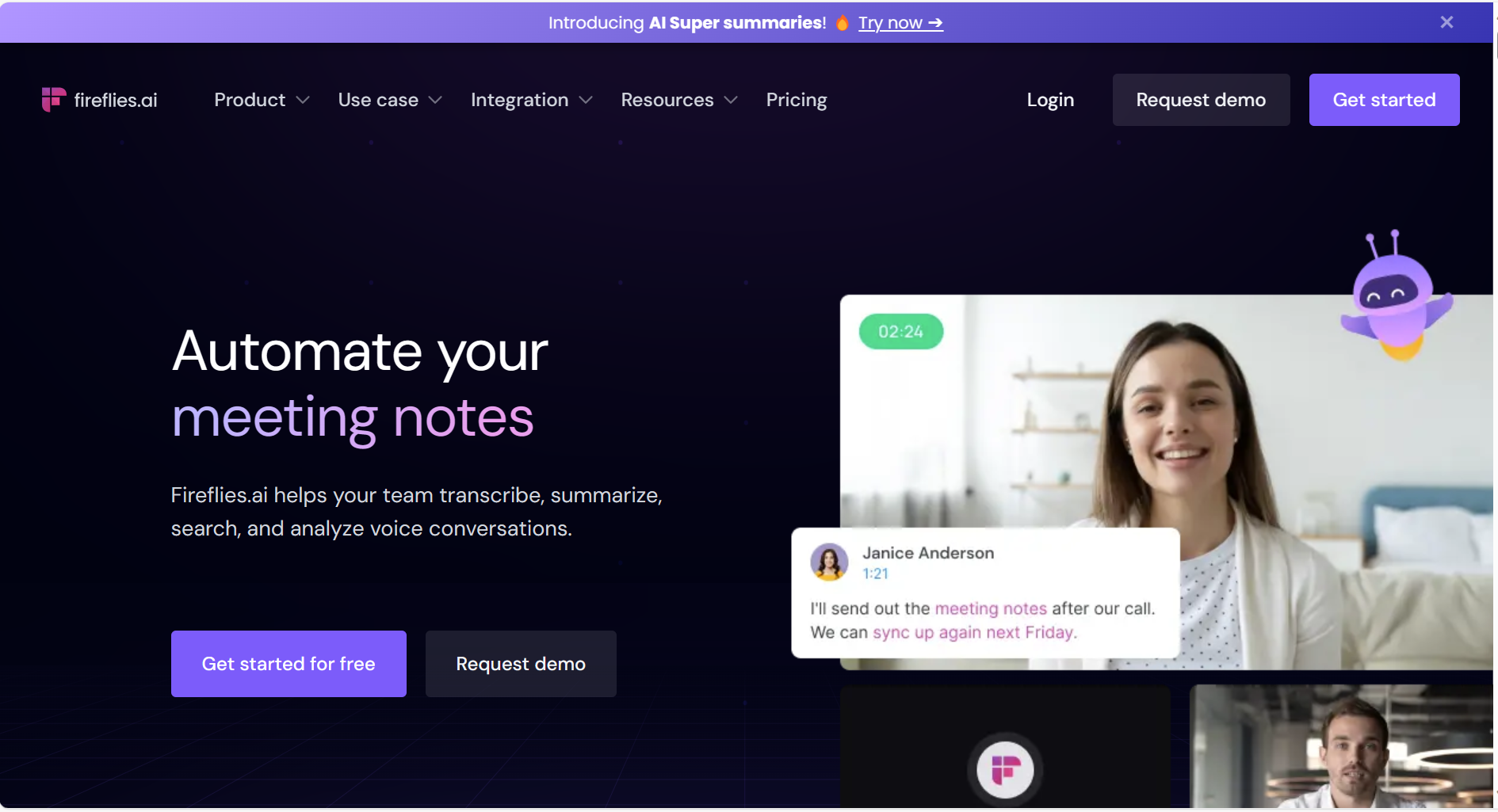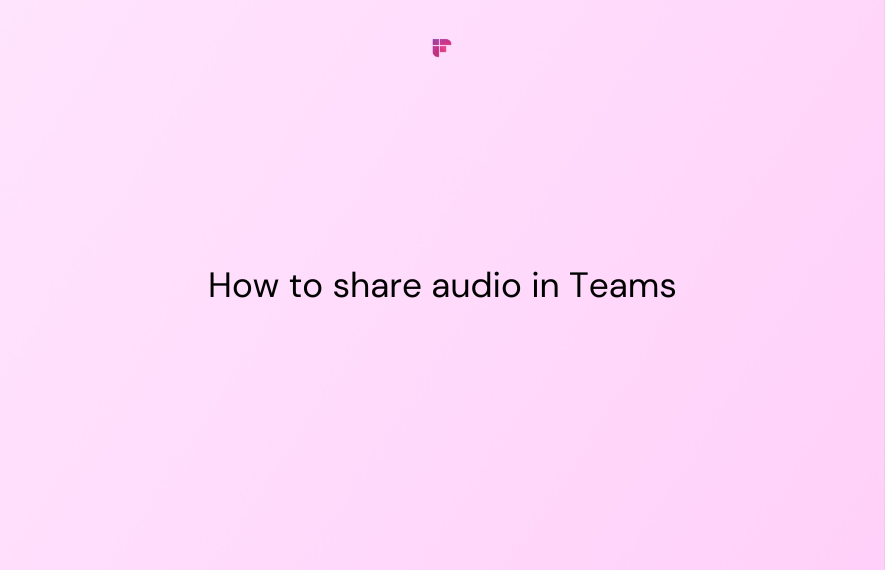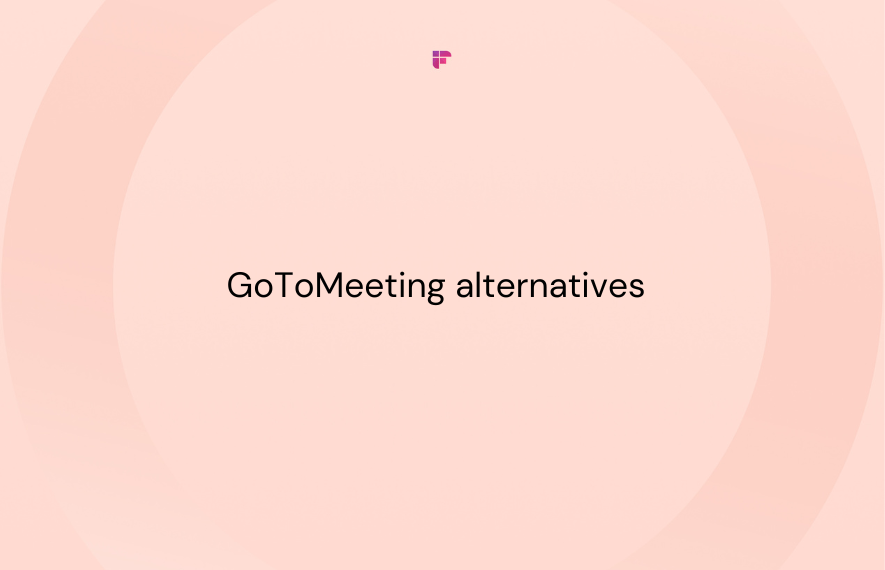"The difference between the almost right word and the right word is really a large matter—'tis the difference between the lightning-bug and the lightning." ~ Mark Twain
Words are powerful.
What we say directly impacts our meeting's outcomes. Despite knowing this, we often get carried away. We don't weigh our words and end up saying rude or offensive phrases that may seem harmless but are not.
Saying the wrong things can be the roadblocks to hitting your objectives, better collaboration, and work relationships.
Most of the time, you're just not aware that a phrase is offensive. So let's talk about that. Here are the most common offensive phrases used in meetings.
15 Offensive phrases you shouldn't say in meetings

1. "What did you mean by that?"
A lot of things gets lost in communication. It’s not because of language disparity. This can still happen even if every meeting attendee is proficient in a single language.
Most of the time, it’s due to poor communication skills. It could also be that the receiver of the message is not well versed in the subject at hand.
Instead of saying that, you can provide choices: “I just want to clarify what you said. Is it a________ or b__________?”
2. "I'm not responsible for that"

A comeback phrase customer-facing professionals fall back on when they are not trained well or work in companies that have compartmentalized processes.
It makes the company look bad and makes the customer feel helpless. Instead of saying you are not responsible, tell the customer that you can connect or direct them to the person who can help.
3. "It's impossible"
This is an offensive phrase that conveys a hopeless and pessimistic outlook. And saying such things might even affect your performance and growth in the company. Employers recognize and appreciate folks with a can-do attitude.
A hard no should not always be the answer to a challenge, especially if it is within your area of expertise.
"Let me check on it again" is a better response. State any worries that you have about the task along with that. Be honest about any limitations that you might face.
4. "Whatever you say"
It's tempting to use this in a heated discussion. We've all been there. You just want it to end rather than say more things you'll regret.
It isn't very respectful, nonetheless. Stating how you feel will do you good in this case. You can say, "Can we have a short break? My emotions are affecting my judgment. Let's think this through first."
5. "I've heard this before."
Dismissing someone's contribution as repetitive can undermine their confidence and discourage future participation. Remember, even if something sounds familiar, there might be a new twist or perspective that you haven't considered.
Instead, acknowledge the input and build on it. You could say, "Thanks for bringing that up again. It's a good point, and maybe we can brainstorm some ways to make this idea even more effective."
6. "This is pointless"
Yes, maybe to some, but not to everyone else in the room. This offensive phrase can make the person talking feel like her opinion doesn't matter.
All meeting participants should feel comfortable and confident in participating in the discussion. Ideas flow when folks are.
If you feel that it's completely irrelevant to the meeting agenda, you can say, "What do you think if we do it this way?" or "I see why you would say that, but can we try this instead?"
7. "You are on mute"
A common virtual meeting faux pas. While it's pretty much stating the obvious, this phrase can affect the speaker's self-confidence, especially when multiple meeting participants say it.
In this age of virtual meetings, everyone is expected to understand how essential remote tools work. Even if we know how they work, unintended mishaps can still happen. It can be a simple case of forgetting to unmute the microphone, nothing more.
A quick reminder is all the person needs. "I can't hear what you're saying. Can you please check your mic's settings?"
8. "Let's wait a few minutes for everyone to join"

It shows a lack of respect for those who joined the call on time. Try not to use this offensive phrase as much as possible. While there may be genuine reasons for others to be late, asking the ones present to wait can be offensive.
Instead of using this phrase, you can buy more time by asking participants how they are or what they are working on. These initial five minutes provide you an opportunity to spark their imagination.
9. "No offense, but..."
Most of the time, everything that comes after this preemptive phrase is offensive. It barely softens the blow. It's similar to saying "Not to brag, but."
You might be tempted to say this when someone said the wrong thing. Instead of saying this, you can start with "Here's why I disagree."
10. "We've always done it this way"

Sticking with "We've always done it this way" is like putting progress on hold. It assumes the current way is the only way, which is rarely true. Innovation thrives on fresh ideas and looking for better solutions.
Next time this phrase pops up, suggest exploring some alternatives. You could say, "That's a good point, and while this method has worked in the past, let's see if there are any new approaches that could help us achieve our goals even faster."
11. "Let's just take this one offline"
Doesn't this feel like fight words to you?
While you may mean that you would like to handle the matter later, the receiver can feel that their contribution is not significant enough to be discussed at that time.
A more proper way to say this is, "While this is an important topic, it is outside the scope of this meeting. I'll email you right after this so we can schedule a time to talk."
12. "You're wrong"

Hearing "You're wrong" shuts down conversations extremely fast. It puts people on the defensive and makes them dig in their heels.
If you disagree with someone, a better approach is to share your perspective in a respectful way and keep the conversation flowing.
Try something like, "That's an interesting viewpoint. I see it a little differently. Maybe we can explore both ideas and see if we can find some common ground."
13. "I don't care"
The most effective leaders have a high level of emotional intelligence. They know how to control emotions during meetings. And that's important. It stops you from being brash when your plans go off course.
For example, if someone says or does something that doesn't align with the meeting agenda, saying "I don't care" is off-putting. Tt's an offensive phrase that must be avoided at all cost.
Try this instead: "We can't talk about this right now since it's not part of the agenda. But we can come back to this at a different date."
14. "I don't have time for this right now"

Meetings, whether high-stake or not, should not take longer than it should. But sometimes, there are folks who are just too eager to voice out their concerns.
If your stress level is already at peak 100%, there is a big chance that you will utter these words.
Take a deep breath, look the person in the eye, and say, "Let's put this on hold for now since we're running out of time here."
15. "That's just how it is"
Sometimes things go wrong, but saying, "That's just how it is," is like accepting defeat before you even try. It shuts down any possibility of finding solutions or making things better.
Great teams are always looking for ways to improve. Instead, try fostering a problem-solving attitude. You could say, "This isn't ideal, but let's see if we can come up with some ways to overcome this obstacle and make things run smoother."
How Fireflies.ai enhances your online meetings

With the rise of remote and hybrid work, online meetings have become the norm, allowing teams to collaborate virtually. However, ensuring productivity and effective communication in virtual meetings can be challenging.
This is where Fireflies.ai emerges as an indispensable tool, revolutionizing the way teams collaborate and communicate during online meetings.
Here's how Fireflies empowers you:
- Effortless Recording and Transcription: Fireflies eliminates the need for frantic note-taking. With over 90% accuracy, Fireflies.ai transcribes meetings in over 60 languages, ensuring everyone has access to a clear record of the discussion.
- Action Items and Meeting Summaries: Fireflies provides comprehensive summaries, intelligently identifies key takeaways, and automatically generates action items, ensuring clear next steps and accountability.
- Conversation Intelligence and Sentiment Analysis: Gain valuable insights into meeting dynamics with the Conversation Intelligence feature. Identify areas for improvement in communication style and foster a more inclusive environment.
- Smart Search: Quickly revisit specific points in a meeting with Fireflies' Smart Search feature.
- Customizable Notes and Topic Trackers: Create customizable notes to capture specific details relevant to your team or project. Additionally, topic trackers allow you to focus on designated discussion areas, ensuring clarity and focus on the meeting's objectives.
- Soundbites: Fireflies' unique Soundbites feature allows you to create short, impactful audio clips from recorded meetings. Share these Soundbites to highlight key moments, promote insights, or recap important discussions in an engaging format.
- Seamless Integrations: Fireflies.ai integrates seamlessly with over 40 popular applications, including CRM and project management platforms, streamlining your workflow and maximizing convenience.
- AskFred: Fireflies' GPT-4 powered bot, AskFred, acts as your virtual assistant, answering questions and generating post-meeting emails based on the conversation. This saves you time and ensures clear communication after the meeting has ended.
FAQs
What should you not say in a meeting?
Be mindful of certain phrases to avoid, i.e., phrases that shut down communication: accusatory questions, negative remarks, dismissive comments, or general negativity about ideas and thoughts being discussed.
How to say I can't without saying it?
Offer alternatives or suggest revisiting later:
- "Let me check my schedule and get back to you on availability."
- "This might be outside my expertise, but I can connect you with someone who can help."
- "This seems like an important discussion, but perhaps we can revisit it at a dedicated time."
How do you politely avoid a meeting?
Express regret and suggest alternatives:
- "Unfortunately, a conflict has come up. Could I reschedule or get a recording?"
- "The agenda seems focused on X, which I'm not involved in. Perhaps [colleague] would be a better fit?"
- "I appreciate the invite, but I'm swamped right now. Is there a summary I can review later?"
Words of Wisdom
To have productive and successful meetings, avoid using offensive phrases that can shut down communication and collaboration.
Instead, watch your words and use more positive and constructive language that creates an environment where everyone feels heard and respected.
It will go a long way in creating a dream team that stays and works together more effectively towards a common goal. By replacing these listed phrases with thoughtful and respectful communication, you can ensure everyone feels valued and contributes to a productive meeting atmosphere.







